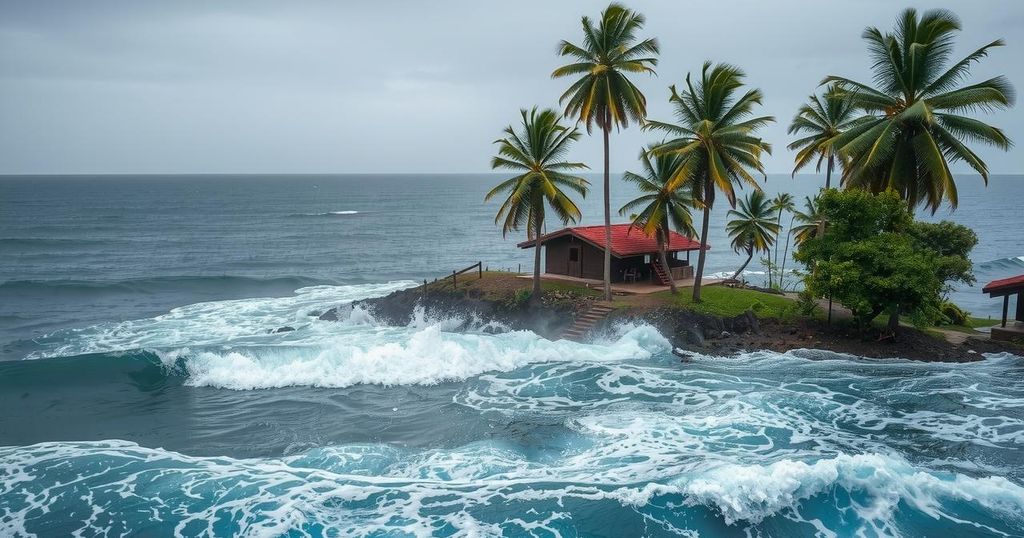Cyclone Chido Causes Widespread Devastation in Mozambique and Mayotte

Cyclone Chido, a Category 4 storm, hit Mozambique’s Cabo Delgado province, causing extensive damage. After devastating Mayotte, revealing significant destruction and potential casualties, the cyclone has impacted approximately 1.7 million people. Local authorities and international organizations are actively engaged in response efforts to support affected communities.
Cyclone Chido, classified as a Category 4 storm, made its landfall on December 15, 2023, in Pemba, the capital of Mozambique’s Cabo Delgado province, following a path of destruction through Mayotte, a French overseas department. The cyclone has left an estimated 1.7 million individuals impacted across Mozambique, with officials from the International Organization for Migration reporting severe winds exceeding 200 km/h and heavy rainfall affecting multiple regions including Cabo Delgado, Nampula, and Niassa. Local and international organizations are actively engaged in response efforts to assess damages and coordinate support for affected communities.
Prior to its impact on Mozambique, Cyclone Chido devastated Mayotte, where reports describe widespread destruction, including entire neighborhoods being flattened. Local authorities estimate that the death toll could be significant, with hundreds feared deceased due to the cyclone’s extraordinary wind speeds reaching up to 136 mph (220 km/h). The Prefect of Mayotte noted the challenging circumstances in confirming exact fatalities, as local customs necessitate swift burial of deceased individuals. Meteorological officials characterized Cyclone Chido as a storm of unprecedented intensity for Mayotte in nearly a century, heightening concerns regarding future impacts on the vulnerable populations in the region.
Cyclone Chido represents a significant meteorological event for both Mozambique and Mayotte, illustrating the potential devastating effects of tropical cyclones in tropical regions. Occurring within the context of increasing global climate variability, such storms pose heightened risks due to the dual impacts of severe weather and socio-economic vulnerabilities of affected populations. Both Mozambique and Mayotte, though distinct in governance, face similar challenges in disaster preparedness and response, necessitating coordinated efforts among local and international agencies.
The landfall of Cyclone Chido has underscored the catastrophic potential of tropical storms, particularly in regions with vulnerable populations. The destruction wrought in Mayotte highlights the immediate need for disaster response and recovery strategies, while Mozambique’s ongoing assessment efforts indicate a commitment to addressing the humanitarian crisis at hand. The response from organizations such as UNICEF and the International Organization for Migration exemplifies the critical collaborative efforts necessary to mitigate the impact of such natural disasters.
Original Source: www.downtoearth.org.in






